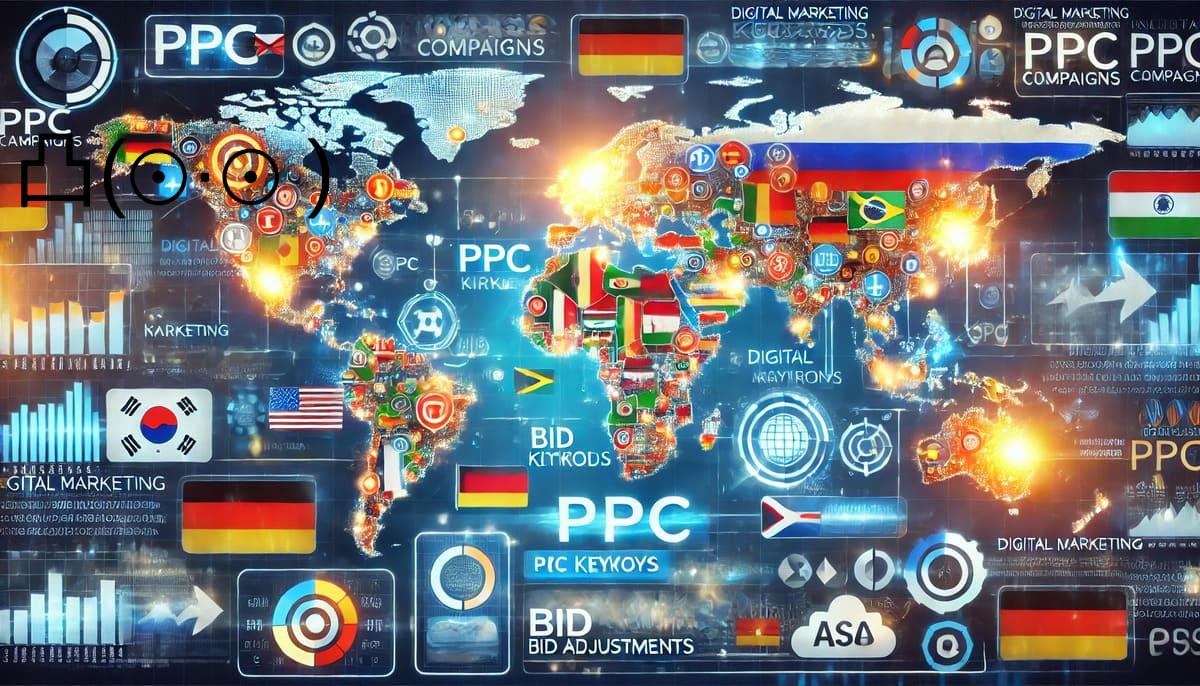
Unlock the potential of your international PPC campaigns with top practices for keyword localization. Learn how to tailor your ads to different cultures, optimize bids for geo-specific markets, and drive global PPC success.
Optimizing International PPC Campaigns: Best Practices for Keyword Localization
Scaling your PPC campaigns globally requires more than simple translations. Effective international PPC campaigns demand keyword localization, geo-specific bid adjustments, and creative adaptation for local markets. By understanding user intent, utilizing native speakers, and leveraging automation tools, you can significantly boost your ROI. Stay ahead of the competition by tailoring your ads to meet regional needs and scaling smartly with automation technologies. #PPCMarketing #GlobalAds #KeywordLocalization #DigitalMarketing #GeoTargeting #AdOptimization
With globalization becoming a business reality, expanding your PPC campaigns to international markets offers a vast opportunity. However, what works for your home market might not translate into success abroad. International campaigns require more than just translating keywords and ad copy—they demand a strategy rooted in localization, cultural nuances, and user behavior.
In this guide, we’ll dive into essential practices for keyword localization, geo-specific bid adjustments, and how you can tailor your campaigns to succeed in different markets. Whether you’re an experienced PPC marketer or new to global campaigns, these insights will equip you to maximize the performance of your international PPC ads.
1. The Power of Keyword Localization: Translating More Than Just Words
When expanding into international markets, keyword localization is critical to success. However, this goes beyond merely translating keywords; it’s about translating the user’s intent. Keyword localization involves understanding local cultures, preferences, and search behaviors.
Steps for Effective Keyword Localization:
- Research Search Intent: Understand how users search for your products in different markets. Are they using slang or specific dialects? Research popular terms used by your target audience in each market.
- Incorporate Local Search Engines: While Google is the dominant global player, other markets may have different preferences. For instance, Yandex in Russia or Baidu in China. Local search engines can offer unique insights.
- Work with Native Speakers: Machine translation tools may help, but they can miss nuances in language. Collaborating with native speakers ensures your keywords align with the cultural context and user behaviors.
For example, in Spain, the literal translation of “cheap cars” might be “coches baratos,” but user behavior shows that “vehículos económicos” or “car deals” (ofertas coches) might perform better in local searches.
2. Geo-Specific Bid Adjustments: Optimize ROI by Market
International PPC campaigns demand different bid strategies for different regions. Factors like local competition, purchasing power, and currency fluctuations can significantly affect campaign performance.
Best Practices for Geo-Specific Bidding:
- Analyze Regional Data: Look at country-specific or even city-specific performance data. Some cities or regions may outperform others, allowing you to adjust bids for better efficiency.
- Time Zone Adjustments: Peak ad performance times can vary drastically by region. Use bid adjustments that target the most effective times in each location.
For instance, while New York may peak during the mid-morning hours, campaigns in Berlin may perform better later in the afternoon, requiring time-specific bid adjustments.
3. Adapt Your Creatives for Local Markets
Many advertisers make the mistake of using the same creatives across all markets. This can lead to ads that feel out of touch with local audiences. To truly resonate, you need to adapt ad copy, visuals, and calls to action to suit the culture and expectations of the market.
Localized Creative Tactics:
- Ad Copy & Messaging: Localize your ad copy to reflect regional slang, humor, and common phrases. Collaborate with local copywriters to ensure your tone is appropriate for the audience.
- Visual Adaptations: Imagery that works in one country may fall flat in another. Be mindful of cultural norms and expectations.
- Localized CTAs: In some regions, urgency-driven CTAs like “Buy Now” work well, whereas other cultures may respond better to a softer approach such as “Learn More.”
4. Leverage Automation for Global Scaling
Running multiple international PPC campaigns can become overwhelming without the right tools. Automation can help you scale your efforts effectively while still maintaining localized control.
Automation Tools for Scaling International PPC:
- Smart Bidding: Utilize automated bidding strategies that use machine learning to adjust bids in real-time based on performance in each market.
- Dynamic Search Ads (DSAs): Use DSAs to automatically generate ad headlines that are tailored to localized content on your website.
By leveraging these automation tools, you can scale your PPC campaigns internationally without sacrificing the nuance required to succeed in each market.
Expanding into international PPC markets provides a massive opportunity to grow your brand’s visibility. By localizing keywords, optimizing bids for each region, and adapting creatives to local audiences, you can boost your campaign’s performance and maximize ROI.
- Failing to localize keywords can result in poorly targeted ads.
- Neglecting geo-specific bid adjustments can lead to overspending in low-performing regions.
- Using generic creatives can alienate local audiences.
International PPC campaigns require a thoughtful, localized approach. From keyword localization to geo-specific bid adjustments and creative adaptation, each element plays a crucial role in ensuring your ads resonate with local audiences and drive maximum ROI.
Leave a Reply